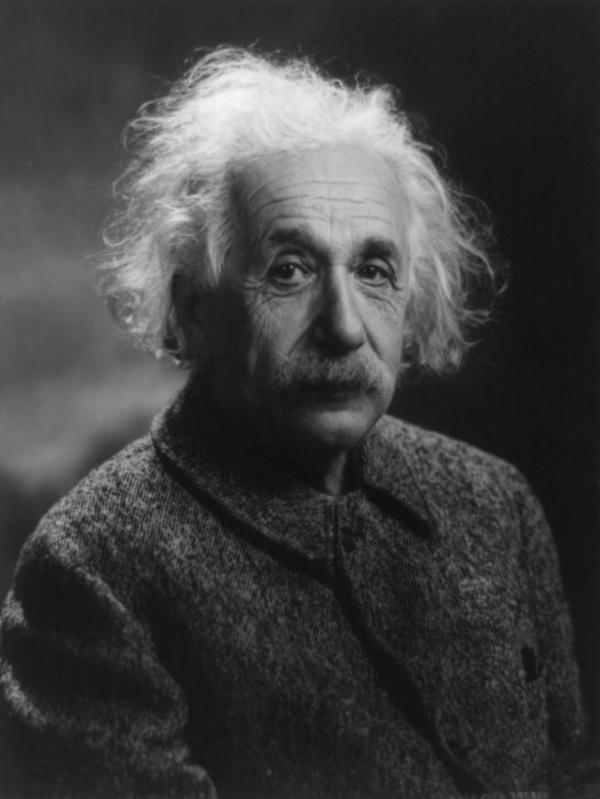NEH announces $39 million in awards and offers for 244 humanities projects

A newly awarded NEH grant will support publication of the collected papers of Albert Einstein.
Library of Congress

A newly awarded NEH grant will support publication of the collected papers of Albert Einstein.
Library of Congress
WASHINGTON (July 26, 2012) – The National Endowment for the Humanities (NEH) announced today $39 million in grants for 244 humanities projects. Among the grants are those that will enable the publication of the first facsimile edition of Stravinsky’s original scores for his 1923 ballet Les Noces and the collected papers of Albert Einstein, Jonathan Edwards, and Emma Goldman and support excavation and archaeological analysis at the site of the ancient Olmec city of La Venta in Mexico.
This funding will support a wide variety of projects, including collaborative research, archival conservation programs, the creation of new digital research tools, professional development opportunities for teachers and college faculty, traveling exhibitions, efforts to build long-term support for humanities initiatives at community colleges, and the production and development of films, television, and radio programs.
NEH grants will support production of a new film by Ric Burns on the political, economic, religious and historical forces that led to the Pilgrim’s migration to New England, and help preserve archival records, photographs, and oral history recordings of 18th-20th century prison life at the Eastern State Penitentiary Historic Site in Pennsylvania. NEH grants will allow school teachers to study the influence of California’s agricultural and fishing industries on the writings of John Steinbeck, enable the development of a digital tool to allow scholars to combine digitized maps from different collections, and provide an endowment to establish a center for humanities and medicine at Ivy Tech Community College of Indiana.
Also among the new grants are those that will bring a six-week documentary film screening and discussion program on American popular music—from blues to bluegrass, Broadway to hip-hop-- to fifty public libraries around the country, and support the digitization of historic newspapers in Arizona, Hawaii, Iowa, Michigan, Missouri, New Mexico, North Carolina, Pennsylvania, Tennessee, Vermont, and Washington.
“From trailblazing initiatives like the Digital Public Library of America to major films and exhibitions to teacher institutes and conservation efforts to preserve cultural heritage collections, these grants are designed to bring the benefits of the humanities into every community, every library, every school, every home,” said NEH Chairman Jim Leach. “In supporting these important projects, the Endowment hopes to increase the access of all citizens to humanity’s great stories, triumphs, and ideas, and foster a love of lifelong learning and discovery.”
This award cycle, institutions and independent scholars in 46 states and the District of Columbia will receive NEH support. Complete state-by-state listings of grants are available here (46-page PDF).
In this cycle, grants were awarded in the following categories:
- America’s Historical and Cultural Organizations: Planning and Implementation Grants support museum exhibitions, library-based projects, interpretation of historic places or areas, websites, and other project formats that excite and inform thoughtful reflection upon culture, identity, and history.
- America’s Media Makers: Development and Production Grants support media projects, including radio, television, and digital technology projects that explore significant events, figures, or developments in the humanities. Development grants enable media producers to collaborate with scholars to develop humanities content and to prepare programs for production; production grants support the preparation of a project for presentation to the public.
- Collaborative Research Grants support original research undertaken by a team of two or more scholars or research coordinated by an individual scholar that adds significantly to humanities knowledge or uses the perspectives of the humanities to enhance understanding of science, technology, medicine, and the social sciences.
- Digital Humanities Implementation Grants support the implementation of innovative digital humanities projects that have successfully completed a start-up phase and demonstrated their value to the field.
- Institutes for Advanced Topics in the Digital Humanities Grants provide scholars and advanced graduate students with the opportunity to deepen their knowledge of advanced technology tools and methodologies relevant to the humanities and to increase the number of humanities scholars using digital technology in their research.
- Landmarks of American History and Culture: Workshops for School Teachers support a series of one-week workshops for K-12 educators that address central themes and topics in American history, government, literature, art history, and other humanities fields related to historic landmarks.
- National Digital Newspaper Program Grants support the creation of a national, digital resource of historically significant newspapers published between 1836 and 1922, from all states and U.S. territories.
- NEH On the Road Grants help small sites defray the cost of hosting an NEH traveling exhibition.
- Scholarly Editions and Translations Grants enable the preparation of editions and translations of significant literary, philosophical, and historical texts and documents that are currently inaccessible or available in inadequate editions.
- Small Grants to Libraries: America’s Music allow institutions to host a six-week public program featuring documentary film screenings and scholar-led discussions on twentieth-century American popular music.
- Summer Seminars and Institutes for College and University Teachers Grants support intensive two- to six- week projects in which fifteen to twenty-five college and university faculty members, working with scholarly experts, engage in collegial study of significant texts and topics in the humanities.
- Summer Seminars and Institutes for School Teachers Grants support intensive two- to six-week projects in which fifteen to thirty school teachers, working with scholarly experts, engage in collegial study of significant texts and topics in the humanities.
- Special Initiative: Challenge Grants for Two-year Colleges enable two-year colleges to strengthen their long-term humanities programs and resources and develop curriculum and financial support models that enhance the role of the humanities on community college campuses.
- Sustaining Cultural Heritage Collections Grants help cultural institutions meet the complex challenge of preserving large and diverse holdings of humanities materials for future generations by supporting preventative conservation measures to prolong the useful life of collections.